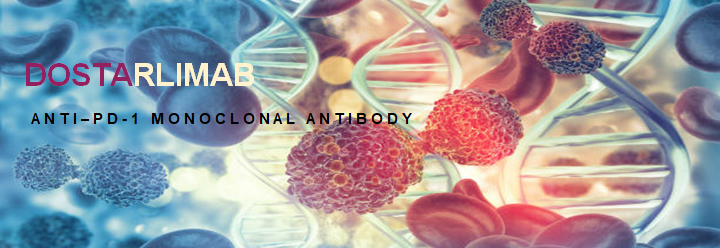According to New York Times, in a small clinical trial, 18 patients took a drug called Dostarlimab for around six months, and in the end, every one of them saw their tumours disappear.
The findings concerning dostarlimab, an antibody drug, in experimental treatment of rectal cancer patients is very encouraging but there is need for long-term studies to understand the real impact, an expert in cancer treatment has said. “This new trial at MSKCC in a small number of patients, with locally advanced rectal cancer patients who had MMR (MisMatch repair) deficiency, have shown total disappearance of tumor without any additional treatment in all 100 percent of them. This is very encouraging, but we must note that long term studies are required to understand the real impact,” Dr. (Col.) R. Ranga Rao, Chairman, Oncology, of Paras Hospitals in Gurugram said.
“The drug is still investigational, and the trial is limited to patients of a specific type , that constitute about 4 to 5 per cent of rectal cancers. While this is highly encouraging, we must not prematurely jump to conclusions that we have found a cure for all cancers, all stages, and no chemotherapy, surgery is ever required,” he added.
It is well recognized that Immunotherapy with PDL 1 blockers in MMRd patients is effective. “Already immunotherapy has made a big difference in the field of cancer of all types. Several earlier trials have shown encouraging responses,” Dr Rao said.
In what appears to be a miracle and ‘first time in history’, a small clinical trial has found that every single rectal cancer patient who received an experimental treatment found that their cancer had vanished.
Dr Luis A. Diaz J. of New York’s Memorial Sloan Kettering Cancer Center (MSKCC) said this was “the first time this has happened in the history of cancer”.
According to experts, Dostarlimab is a drug with laboratory-produced molecules, and it acts as substitute antibodies in the human body.
Overall, dostarlimab shows tremendous promise for the treatment of surgically resectable rectal cancer and may change the current treatment landscape drastically.
The economic impact of biosimilars on the Australian health care system is now clearer, with data revealing their role in reducing market expenditure and driving price competition.
The Chinese Golden Week impacts Ocean Freight Shippers for two main reasons:
Donald Trump’s tariffs of 50% have come into force on most US imports from India. India’s giant generic pharmaceuticals sector and its electronics and petroleum products are exempt from the tariffs. Aluminium, steel and copper remain at 25%, but job-heavy sectors such as textiles, jewellery, seafood and leather are squarely in the line of fire.
The European Chemicals Agency (ECHA) has published the updated proposal to restrict per- and polyfluoroalkyl substances (PFAS) under the EU’s chemicals regulation, REACH. The update has been prepared by the authorities from Denmark, Germany, the Netherlands, Norway and Sweden, who submitted the initial proposal in January 2023.
Most chemicals exported from the 27 member countries of the European Union into the US will be subject to a 15% tariff on top of their selling prices under an agreement signed on July 27 between the US and the European Commission.
We’re thrilled to announce a new strategic alliance between ExSyn, Exim-Indis and simABs, a leading EU-based biologics manufacturer known for its patented continuous flow technology in antibody production.
The global trade landscape is undergoing significant changes following the announcement of new reciprocal tariffs by the United States government. Recent developments indicate significant shifts in global trade dynamics, with key policy adjustments, ongoing negotiations, and evolving logistics patterns. Below is a summary of the latest developments.
In January 2025, the US FDA published a draft regulatory guidance entitled “The Considerations for Use of Artificial Intelligence to Support Regulatory Decision-Making for Drug and Biological Products”.
The adoption of artificial intelligence (AI) and large language models (LLMs) is rapidly reshaping clinical research and drug development.
